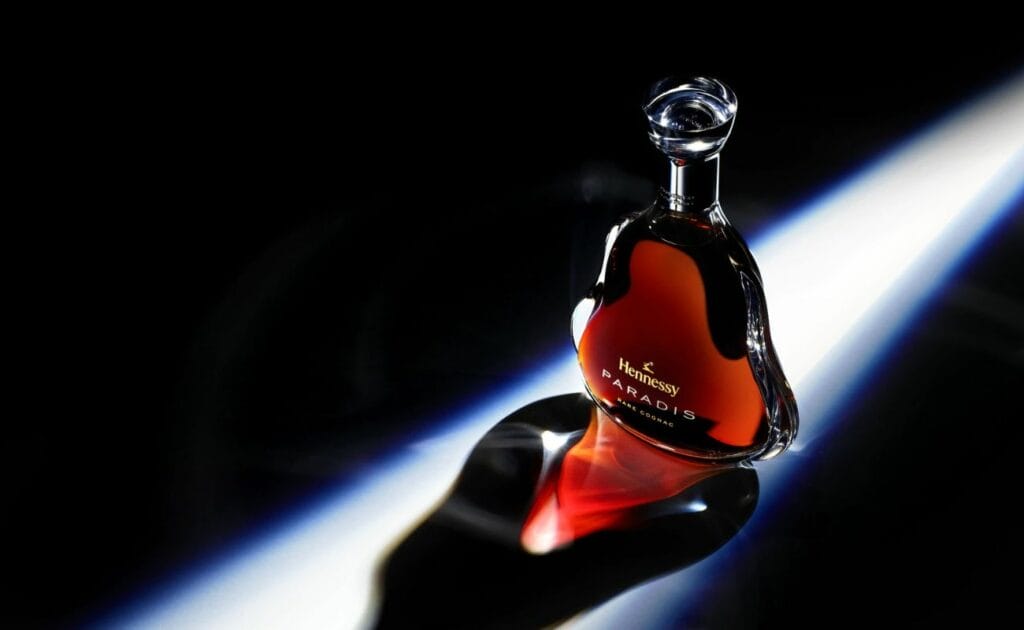Every business has its own unique proposition, essential qualities that set it apart from all others. The successful business is one that is committed to practices that recognise not everything is just about the bottom line. Hennessy is more than just the distiller of some of the world’s finest cognacs – it is also a highly evolved maison that, by its very nature, is forward-looking, faithful to its legacy and devoted to the very highest standards of craftsmanship. These commitments are the very pillars the maison is built upon, and they have all played a part in its enduring success.

Kenny Loh, Creative Director of Lord’s Tailor.
Just as it is for Hennessy, legacy is also a crucial aspect of Lord’s Tailor, the company Kenny Loh and his sisters inherited from their parents, who founded the business in 1974. Creativity and keeping up with the times are important as well, he notes, but they are always underpinned by the commitment to the values established by his parents.
“Of course, we have modernised the company, adopting business practises that bring us up to date with the times, as well as introducing modern cuts and colours,” Loh, who is Creative Director of Lord’s Tailor, says. “Still, whatever we do is always keeping to what our parents established all those years ago – impeccable quality and service. Every decision or change we make to the business reflects those standards that they set.”
The look and feel of Lord’s Tailor may have evolved over time, but the standards remain unchanged and, just as how the legacy and knowledge of Hennessy has passed on in an unbroken line of eight generations of master blenders, all from the Fillioux family, Loh learned about them from his parents themselves. “When I joined the family business, my parents constantly drilled into me the importance of doing things the right way and always monitored what I did – it took a really long time before they trusted me to do things by myself!” he laughs. Yet, it was something he appreciated over time. “One thing I learnt was that change should never be just for the sake of changing. Somethings will always remain the same; otherwise, we would no longer be Lord’s Tailor.”

Eugene Tham and Wei Yein Leong, Founders of Craftiviti and Yein&Young
For Eugene Tham and Wei Yein Leong, Founders of Craftiviti and Yein&Young, it is craftsmanship that underlines the raison d’être of their businesses. Craftiviti is a one-stop centre of essential and carrier oils, silicone moulds, tools and soap bases for DIY personal care ingredients and therapeutic craft needs. Yein&Young, on the other hand, is a minimalist skincare brand.
The key to this husband-and-wife team’s understanding of craftsmanship is in quality ingredients. “All the products we offer at Craftiviti is of the highest quality,” Tham says. “Customers who blend their own personal care products understand the importance of quality ingredients, and come to us specifically for that.” Not everyone is able to make their own personal care products, however, which is why the duo started Yein&Young. “Many people who visit Craftiviti asked if we had ready-made products,” explains Leong. “And we created Yein&Young to answer this need.”
Just as Hennessy harnesses its formidable craftsmanship to create Hennessy Paradis, one of its rarest expressions composed of rare eaux-die-vie aged for up to 130 years, Leong and Tham took no shortcuts in creating the Yein&Young range. “We use only the finest organic certified ingredients,” says Leong. “This way, our customers get to achieve the healthiest skincare naturally.”
It wasn’t as straightforward as it sounds. “We worked hard to create exactly the kind of products we want for the brand,” Tham explains, and the results are something both justifiably take pride in. “These are products we would use ourselves and they are what we believe in,” Leong says.

Daniel Lim, Vice Chairman of Triterra.
Daniel Lim, Vice Chairman of developer Triterra, sees his company’s maiden project, The Met, a premium grade corporate landmark building in Mont’ Kiara, as more than just a development. “When we started planning this project, we wanted to create something that reflected our values as a developer, something that was both relevant and sustainable.”
While relevance takes into account market needs, Lim explains that Triterra looks beyond that: “We plan for future – our building, hopefully, will last beyond our lifetime and we want to be sure it will still be relevant in 20 or 30 years’ time.” And just as how Hennessy is deeply rooted in its heritage and tradition but still evolves along with its customers, Triterra builds upon its vast experience to anticipate the future. “Sustainability is an increasingly important aspect for many customers and this is why we made sure that The Met is GBI certified,” Lim adds.
The future is important for Triterra, Lim says. “Whatever we do today will have an impact on tomorrow, so we to be sure that our actions will have a positive effect. If we want to remain relevant in the future, we have prepare and work hard today.” Not much different from what Hennessy has been doing since its founding in 1765, then.



